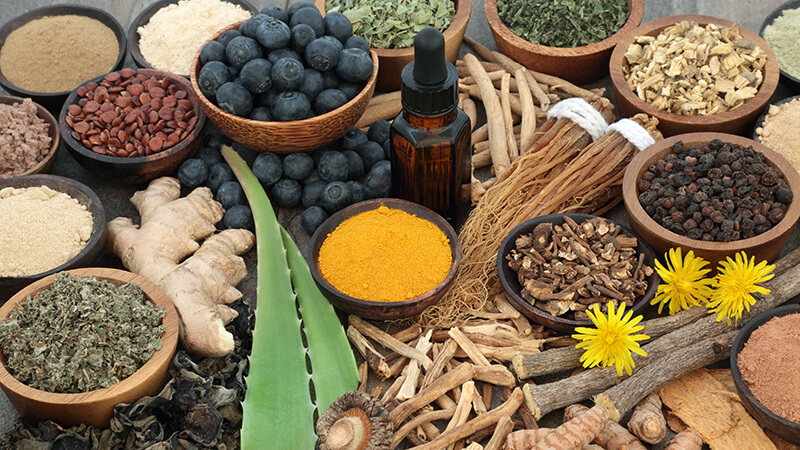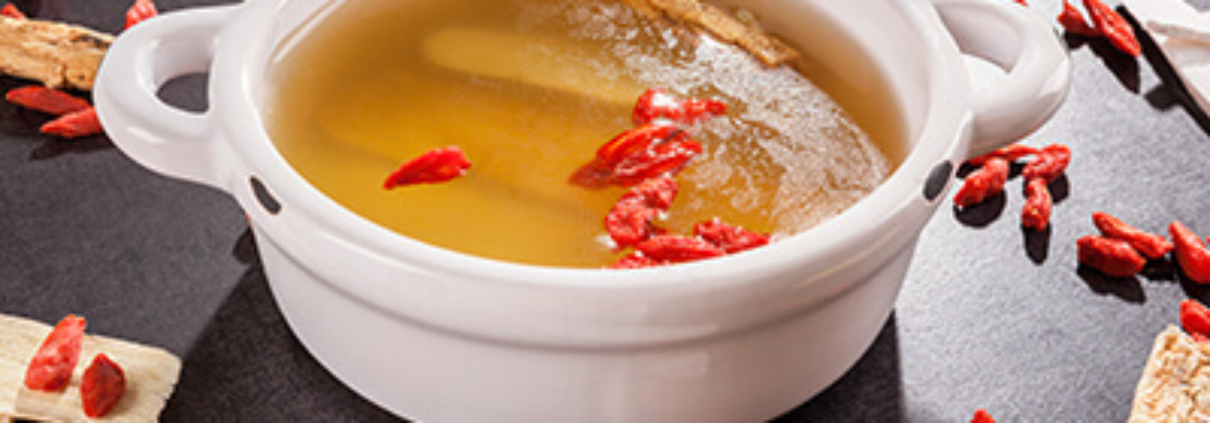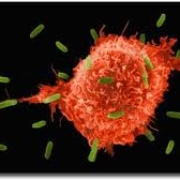Adaptogens – Help The Body Resist Stress Naturally!

Chronic stress is one of the leading causes of illness and disease in the United States, including heart disease, depression, anxiety, high blood pressure, and insomnia. Unfortunately, the response to developing a stress-related illness is to medicate with over-the-counter or prescription medications.
Surely you’ve seen the commercials and ads recommending a pill for almost any ailment these days. The problem with a lot of medications on the market is that they only treat the symptoms of illness rather than addressing the root cause of your discomfort. Additionally, most cause unwanted side effects.
If stress is a regular part of your life, it is essential to know that there are alternatives to merely medicating. Adaptogens are plant-based healing agents that treat the causes of stress naturally and without the added side effects that medications can bring into the picture.
The National Institute of Mental Health lists stress as a common reaction to everyday pressures that may be brought on by things like work, school, finances, or family matters. Although stress typically carries a negative connotation, not all stress is bad. In fact, the body’s reaction to stress can actually help motivate you to perform better, say in preparation for an upcoming job interview, or pending exam. It can also be life-saving in a situation where you need to react to danger. The body prepares to face a threat or flee danger by quickening the pulse, tensing muscles, and increasing brain function to help with survival. The problem with stress is when the body doesn’t have the ability to recover from it. Prolonged stress can cause the body’s hormones to become unbalanced, and that can result in illness and disease.
Adaptogens are a class of healing plants that help to balance, restore, and protect the body from the prolonged release of stress hormones due to chronic stress. They do this by doing the following: Boosting the immune system Supporting a healthy weight Increasing physical endurance and mental focus Reducing discomfort caused by poor health Encouraging a balanced mood Balancing hormones Each adaptogen has its own unique properties that can help with specific types of stressors. Let’s take a look at a few.
1 – Holy basil, a member of the mint family, is frequently used in cooking, but it has also been used as a healing plant for thousands of years. Native to Asia, holy basil, also known as “The Incomparable One,” and is considered one of the most sacred plants of India. Holy basil works to enhance the body’s response to physical and emotional stress naturally by optimizing the functions of the body in times of stress. It is also known to help balance stress hormones.
Make your own Holy Basil tea with this recipe:
Ingredients
- ¼ cup fresh holy basil leaves
- Hot water
- Honey
Instructions:
- Wash the holy basil leaves thoroughly and then place them in a cup. Use the back of a spoon to press the leaves against the side of the cup to help bruise them, which allows the essential oils to escape.
- Pour hot (not boiling) water over the leaves and stir. Place the saucer on top of the cup to trap the essential oils inside the cup as the tea steeps.
- Wait for about 5 minutes. Remove the saucer, strain the leaves, and sweeten the tea as you like it.
- Drink warm or pour over ice. Enjoy!
2– Ashwagandha, also known as the “strength of the stallion” due to its use as immune system support, is a natural stress reliever. It relieves stress by helping to correct hormone imbalances due to emotional or physical stress. This includes adrenal fatigue that can take a physical toll on the body, as well as anxiety, a common psychological side effect to chronic stress. Additionally, ashwagandha helps to balance glucose levels in the body, lower blood pressure, reduce brain cell degeneration, and increase sex drive.
Ashwagandha can be difficult to consume in its raw form due to its bitter taste.
Try these ashwagandha cookies:
Ingredients:
- 1/2 cup refined wheat flour
- Pinch of salt 2 tsp Ashwagandha powder
- 1/4 cup butter
- 1/8 cup sugar
- 1/4 cup milk
Instructions:
- Sift the flour, salt, and ashwagandha powder together 3-4 times with a sieve and set aside.
- Melt the butter in a pan.
- Add sugar to the melted butter and mix well.
- Next, add milk and mix together.
- Add the dry ingredients to the wet ingredients, mix, and knead into a dough.
- Form the dough into cookies on a baking sheet.
- Bake in the oven at 375 F for 2-3 minutes.
3 – Licorice Root
Real licorice root is actually a therapeutic herb that has been used for its natural balancing abilities for centuries. It is a powerhouse herb when it comes to treating adrenal fatigue, which, as you know, is often associated with chronic stress.
Research has shown that licorice can help to modify or increase the body’s levels of cortisol production to support healthy adrenal production, and to help with adrenal fatigue. Licorice contains a compound called glycyrrhizic acid that stops the body from breaking down cortisol, so that the body does not become depleted during times increased or prolonged stress.
Try this licorice and ginger tea:
Ingredients:
- 2 quarts water
- 1/4 cup licorice root
- 1 finger’s length fresh ginger, sliced, not peeled
Instructions:
- Fill a pot with 2 quarts of water
- Add licorice and ginger
- Bring to a boil, then simmer for 10 minutes
- Pour through a fine-mesh strainer into mugs
- Serve and enjoy
4 – Ginseng is a slow-growing root used for its stress-related benefits in the United States and Asia for centuries.
According to the National Center for Biotechnology Information, “Ginseng effectively regulates the immune response and the hormonal changes due to stress, thus maintaining homeostasis. In addition to suppressing the occurrence of psychological diseases such as anxiety and depression, ginseng also prevents stress-associated physiological diseases.” Ginseng not only helps to balance the hormones, it also works to treat stress-related issues like adrenal fatigue and unbalanced plasma glucose levels.
Try this delicious ginseng smoothie:
Ingredients:
- 8 ounces of coconut water
- 1/2 cup fresh mango
- 1/2 heaping cup fresh pineapple chunks
- 1/2 teaspoon ginseng powder
- 1/2 teaspoon cinnamon
- Pinch of nutmeg
Instructions: Add the coconut water, mango, pineapple, ginseng powder, cinnamon and nutmeg to a blender, blending on low speed until smooth.
5 – Astragalus root is an essential herb in Traditional Chinese Medicine, and it has been used as a natural curative for thousands of years.
It is most commonly known as an herb capable of slowing the aging process. It also helps to support a strong immune system, one of the many bodily systems that come under attack in cases of chronic stress. Like many of the other adaptogens, we have discussed, astragalus is used to help balance stress hormone cortisol to prevent adrenal fatigue. It is also used to prevent or reduce conditions that can be related to stress, such as high blood pressure, diabetes, and works as an anti-inflammatory.
Immune boosting soup:
Ingredients:
- 8 cups of water
- 1 tablespoon olive oil
- 1 onion, diced
- 1 bulb garlic, minced
- 1 1/2 inch piece of fresh ginger root, grated
- 1 1/2 cups salted vegetable soup stock
- 5 pieces of sliced, dried astragalus root
- 2 cups fresh, sliced shiitake mushrooms
- 1 large reishi mushroom Cayenne powder, if desired
Instructions: Bring water to boil in large pot Heat olive oil, sauté garlic, onions, and ginger until soft and aromatic
- Add contents of skillet to water
- Add broth, shiitake, astragalus, and reishi
- Simmer covered for two hours
- Remove from heat, allow to sit for two more hours
- Remove astragalus and reishi mushrooms Reheat Add salt and pepper to taste, and cayenne powder if desired
- “Types of Stress.” Retrieved from http://www.apa.org/helpcenter/stress-kinds.aspx, 5/17/2018. American Psychological Association. (n.d.).
- “Understanding Chronic Stress.” Retrieved from http://www.apa.org/helpcenter/understanding-chronic-stress.aspx, 5/14/2018. Axe, Josh. (n.d.).
- “Ashwagandha: The Complete Herbal Guide”. 5/17/2018. Axe, Josh. (n.d.).
- “7 Adaptogenic Herbs or Adaptogens that Help Reduce Stress”. Retrieved from https://draxe.com/adaptogenic-herbs-adaptogens/, 5/17/2018. Axe, Josh. (n.d.).
- “10 Holy Basil Benefits: Tulsi Helps Anxiety, Acne & More”. Retrieved from https://draxe.com/holy-basil-benefits/, 5/17/2018. Axe, Josh. (n.d.).
- “How to Overcome Adrenal Fatigue”. 5/18/2018. Axe, Josh. (n.d.).
“Ashwagandha: The Complete Herbal Guide”. 5/17/2018. Brothers, Le’Nise. (2016).
- ”What Are Adaptogens.” Retrieved from https://eatlovemove.com/2016/12/18/what-are-adaptogens, 5/14/2018. CureJoy. (2018).
- “7 Proven Benefits Of Ashwagandha For Stress Relief”. Retrieved from https://www.curejoy.com/content/ashwagandha-for-stress/, 5/18/2018. Gallagher, John. (2010).
- “Herbal Immune System Booster Soup Recipe, a Great Cold Home Remedy”. Retrieved from https://learningherbs.com/remedies-recipes/herbal-immune-system/, 5/18/2018. Gotter, Ana and Brian Krans. (2017).
- “The Health Benefits of Holy Basil”. Retrieved from https://www.healthline.com/health/food-nutrition/basil-benefits, 5/17/2018. Group, Edward Dr. (2018).
- Astragalus Root: 10 Health, Immune System, & Anti-Aging Benefits”. Retrieved from https://www.globalhealingcenter.com/natural-health/astragalus-root-health-immune-system-anti-agingbenefits/, 5/19/2018. Hansen, Fawne. (2017).
- “How To Use Licorice Root For Adrenal Fatigue”. Retrieved from https://adrenalfatiguesolution.com/licorice-root-adrenal-fatigue/, 5/17/2018. Klein, Sarah. (2013).
- “Adrenaline, Cortisol, Norepinephrine: The Three Major Stress Hormones, Explained”. Retrieved from https://www.huffingtonpost.com/2013/04/19/adrenaline-cortisol-stress-hormones_n_3112800.html, 5/18/2018. Knott, Lawrence Dr. (2016).
- “Acute Stress Reaction”. Retrieved from https://patient.info/health/stress-management/acute-stress-reaction, 5/17/2018. Maslowski, Debra. (n.d.).
- “The Wonderful Health Benefits of Holy Basil (Tulsi)”. Retrieved from https://www.diynatural.com/tulsi-and-holy-basil-benefits/, 5/17/2018. Medicine Hunter. (n.d.).
- “Holy Basil: Relieve Stress and Anxiety Naturally”. Retrieved from http://www.medicinehunter.com/holy-basil, 5/18/2018. Mills, Harry and Natalie Reiss and Mark Dombeck. (2008).
- “Mental and Emotional Impact of Stress”. Retrieved from https://www.mentalhelp.net/articles/mental-and-emotional-impact-of-stress/, 5/17/2018. National Center for Biotechnology Information. (2017).
- “Effects of ginseng on stress-related depression, anxiety, and the hypothalamic–pituitary–adrenal axis”. Retrieved from https://www.ncbi.nlm.nih.gov/pmc/articles/ PMC5628357/, 5/18/2018. National Institute of Mental Health. (n.d.).
- “5 Things You Should Know About Stress”. Retrieved from https://www.nimh.nih.gov/health/publications/stress/index.shtml, 5/18/2018. Watson, Stephanie and Ann Pietrangelo. (2017).
- “The Effects of Stress on Your Body”. Retrieved from https://www.healthline.com/health/stress/effects-on-body#1, 5/17/2018. Yummly. (n.d.). Ginseng Root Recipes”. Retrieved from https://www.yummly.com/recipes/ginseng-root, 5/18/2018.











